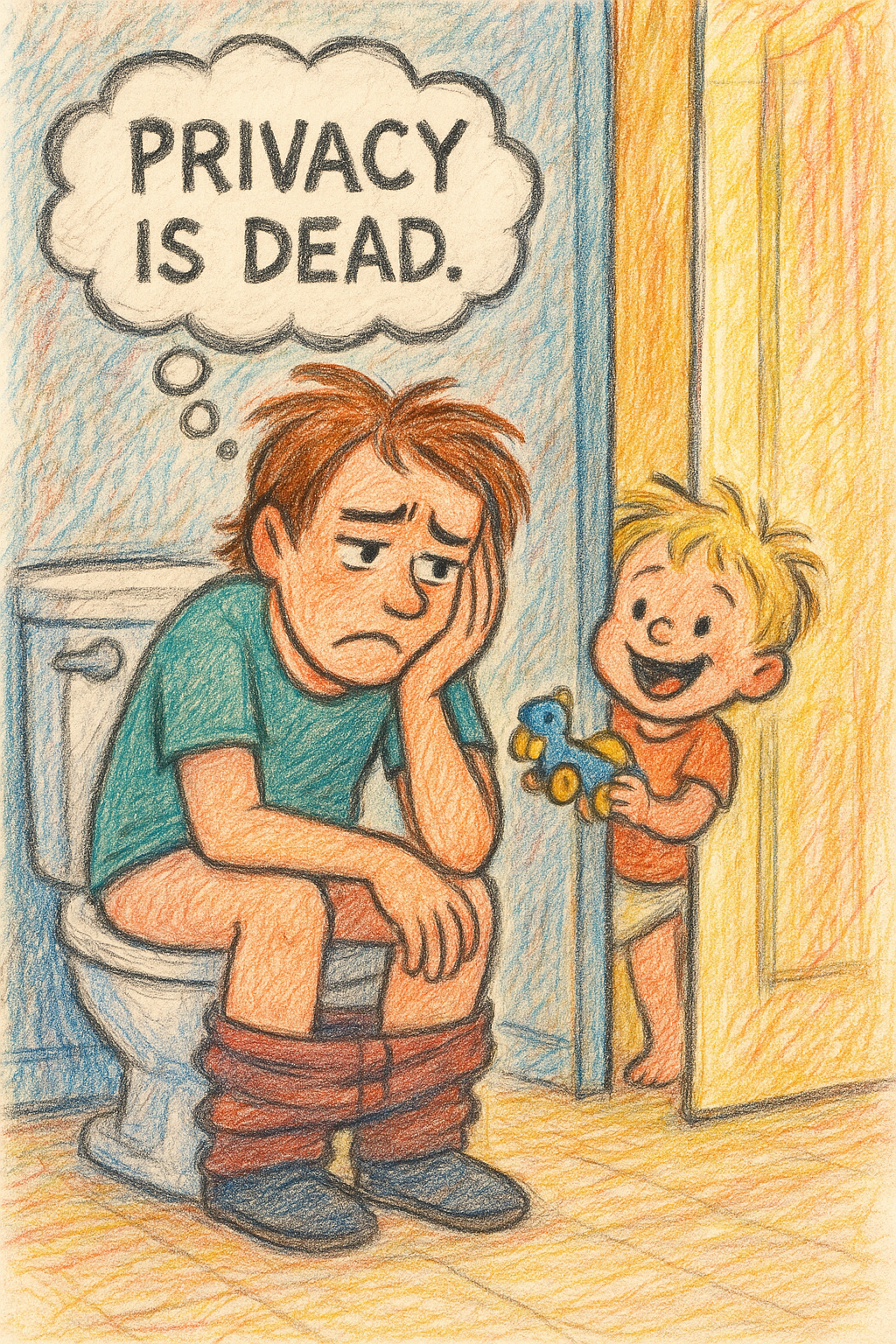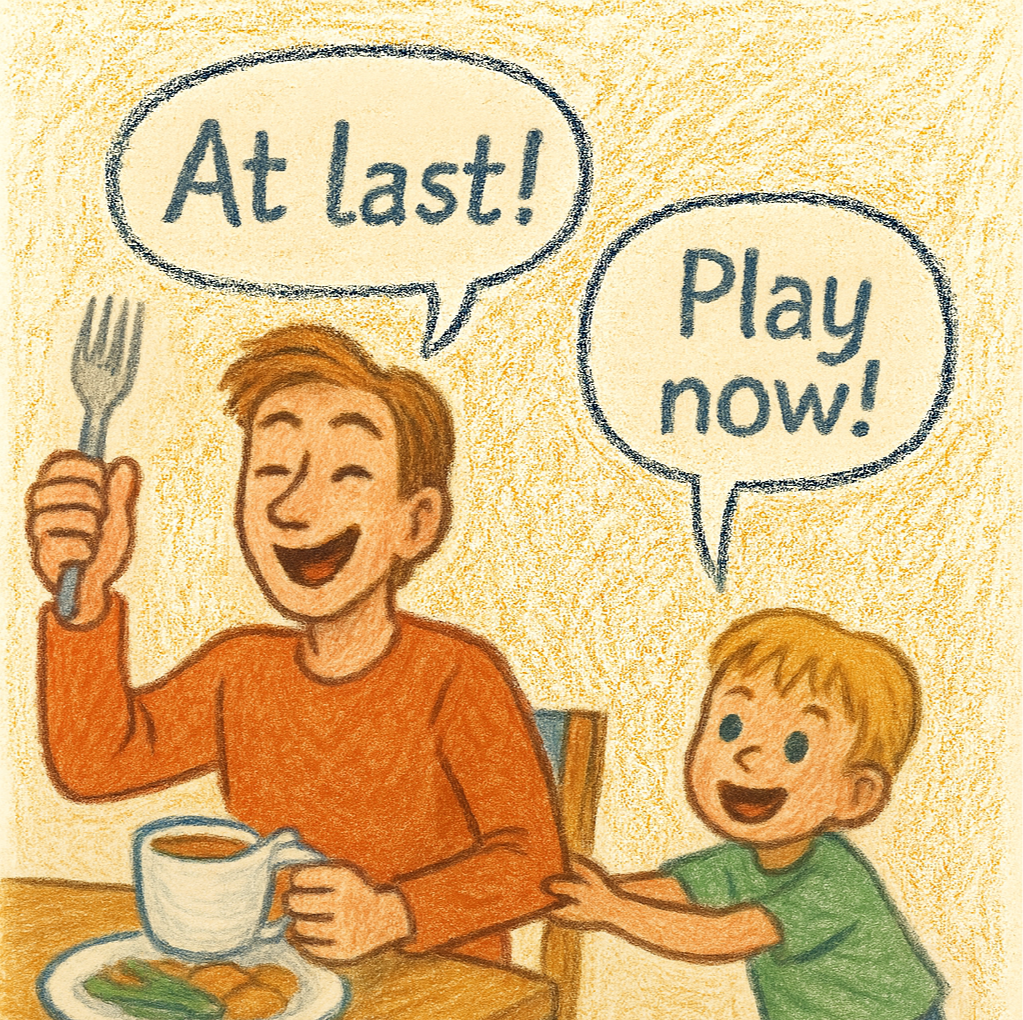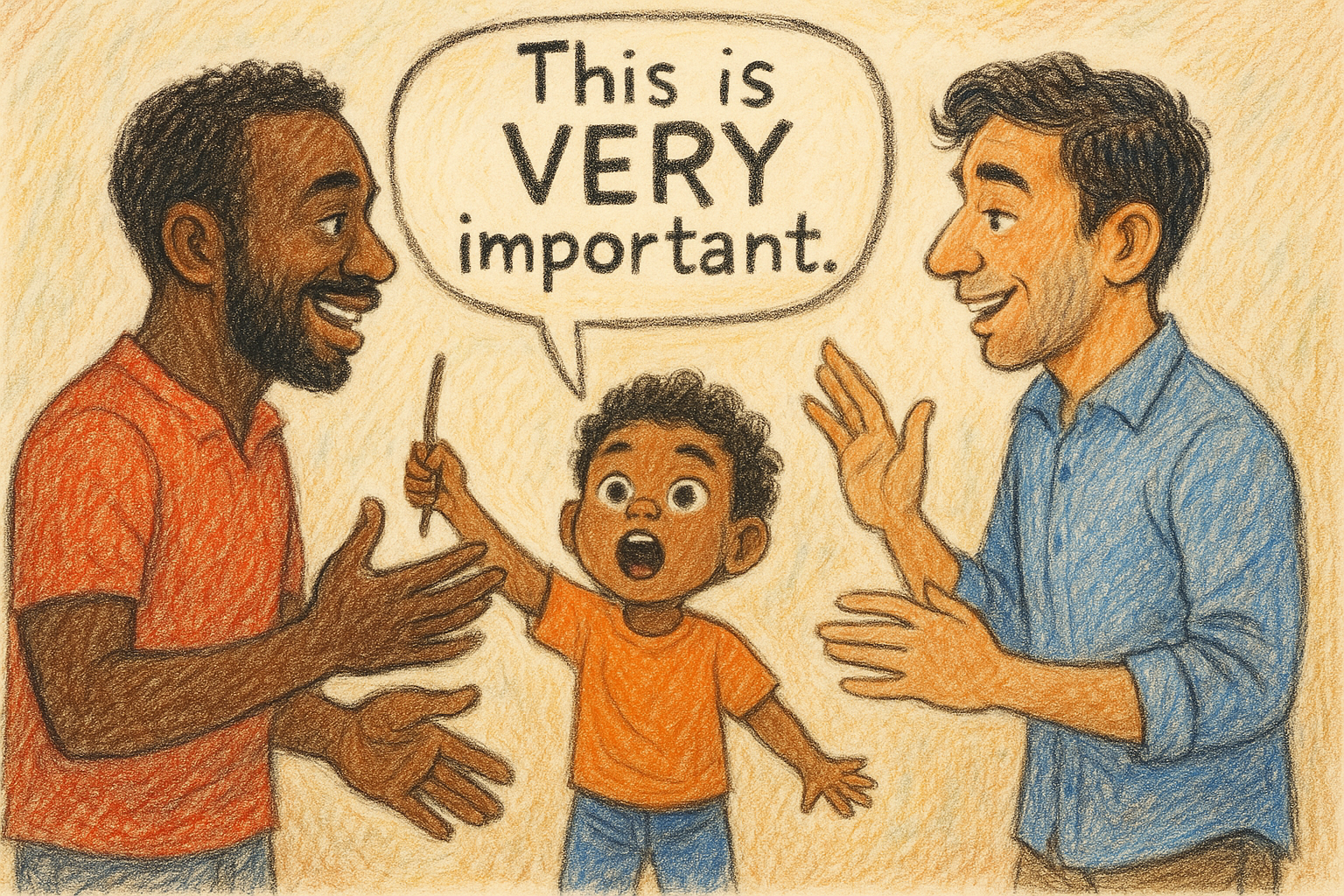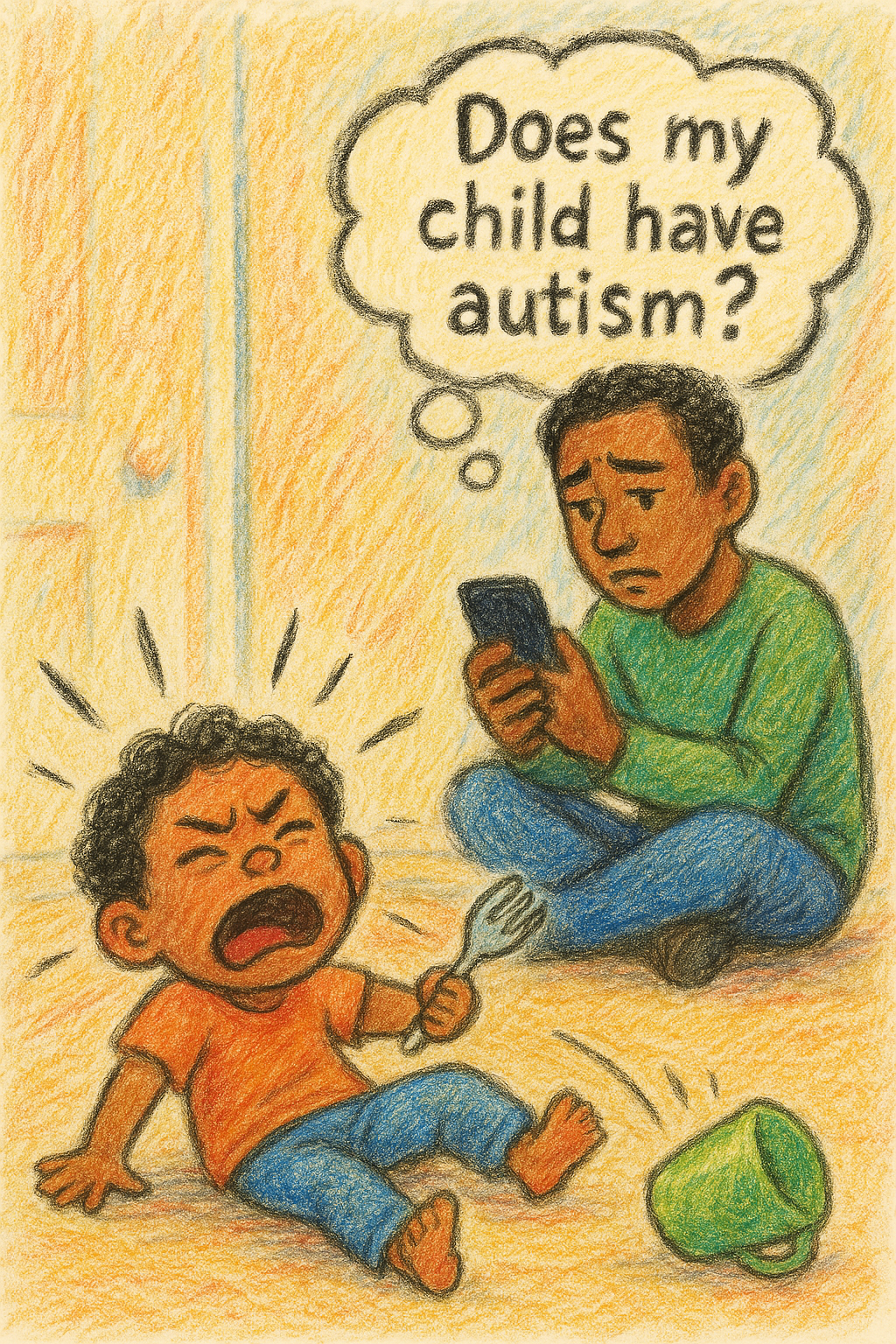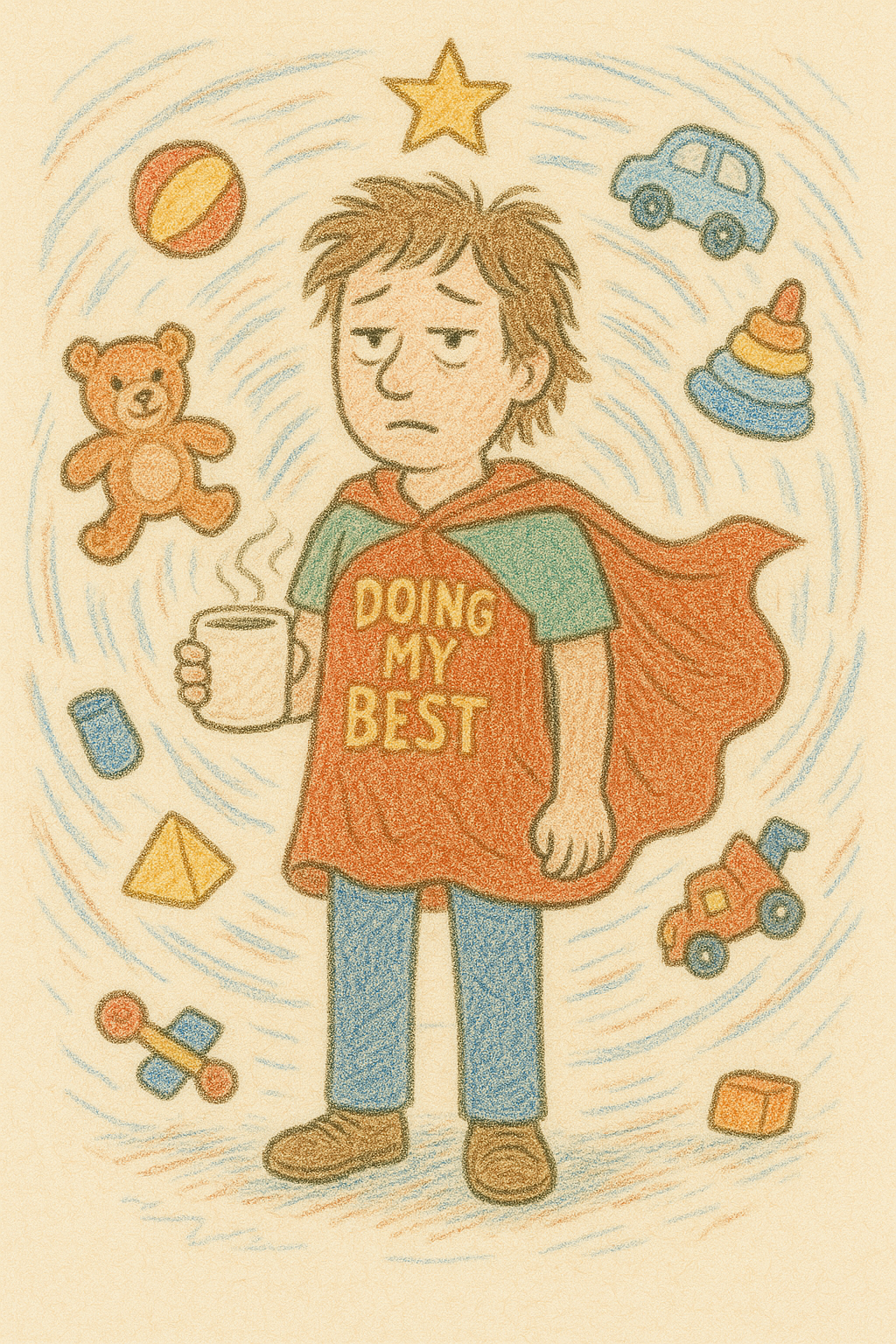So Long, Personal Space…
… The Parent Life Nobody Warned You About
Welcome to parenthood — the magical stage of life where “me-time” is something you vaguely remember from a distant past, like pre-baby lie-ins or finishing a hot drink in one go. If you’re currently reheating the same cup of tea for the third time, while a toddler yells your name from another room, you’re in the right place.
I’m writing about this here because the summer holidays are basically a crash course in “extreme parenting” — 24/7 requests, sticky fingers on your face, and someone following you into the loo like it’s a group activity. It’s in those moments you suddenly notice just how much personal space you’ve surrendered since becoming a parent. And while I joke about ‘losing’ more than gaining, it does link to school readiness: separation and independence don’t just magically appear on the first day of Reception. They start here, in the messy, clingy, slightly claustrophobic weeks of summer.
Imagine you had an all-in-one robot helper that cooks, cleans, entertains, massages, and answers every question you have on demand. You’d probably get a bit demanding too, right? Maybe even emotional when it doesn’t do exactly what you want, at the exact time you want it? That’s your toddler’s world. And guess what? You’re the robot.
This blog is your official permission slip to laugh (and sigh) about the chaos that comes with the toddler years. And in case you’re wondering: no, it’s not just you.
Why Toddlers Are So Extra
Toddlers are delightful, hilarious, and… relentless. Why? Because at this stage, you are their entire world: their comfort zone, their Google search engine, their chef, and their live-in entertainer.
But there’s more to it than just being clingy for fun:
They’re learning independence, but they’re not quite ready to let go of you.
Their brains are like busy motorways — millions of connections happening every second, but zero traffic lights.
They have big feelings, tiny self-regulation skills, and no filter. Meltdowns are not planned attacks — they’re emotional overflows.
They live in a world where routines feel safe. Changes can set off a ticking time-bomb.
When you understand this, you realise: it’s not personal, it’s developmental. But that doesn’t make it any less exhausting when you can’t go to the toilet alone.
The Greatest Hits of Toddler Interruption
🎵 Track 1: The Cold Tea Chronicles
You’ve boiled the kettle. Poured the water. Added the milk. You’re ready for that golden sip of calm — when suddenly:
“Mummyyyy! My sock is funny!”
Ten minutes later, the tea is lukewarm. By the third reheat, you wonder if caffeine can evaporate.
🎵 Track 2: Bathroom Audience (Front Row Seats)
Remember when locking the bathroom door was an option? Not anymore. Toddlers view toilet breaks as VIP meet-and-greet events. If you manage a solo trip, check for signs of life — they’re probably dismantling the sofa or giving the dog a haircut.
🎵 Track 3: The Meal-Time Marathon
You’ve plated up, they’ve eaten half. You sit down with your own food, fork raised like a flag of hope — and then:
“I’m done! Can we play now?”
So you shovel in two mouthfuls while negotiating with a human who just declared “I’m starving” ten minutes ago.
🎵 Track 4: The Conversation Killer
Ever tried to talk to another adult in the presence of a toddler? Impossible. They have a radar for any conversation that doesn’t involve them and will interrupt with urgent news about a stick they saw two weeks ago.
Result: you’ll cover one topic across three separate playdates or keep recycling the same unfinished stories every time you meet someone.
The “Is This Normal?” Parent Moment
At some point, every parent wonders: “Is this behaviour a sign of something bigger?” You’re not alone — it’s a common question because toddlers can be… intense.
Behaviours that often make parents pause:
Freak-outs over the wrong colour cup
Arranging toys in perfect lines and melting down if they move
Obsessions with one particular object or routine
Hating certain textures or refusing to wear clothes with tags
Covering ears for loud noises or becoming distressed in busy places
These quirks don’t automatically mean your child has special needs. Many are normal developmental phases tied to control, predictability, and sensory development. Toddlers crave order because the world feels overwhelming. They’re also experimenting with independence and boundaries — sometimes dramatically.
Knowing This Helps with School Readiness
Why does this matter? Because understanding these phases helps you prepare for school without unnecessary panic. A child who screams about the blue plate today may happily eat lunch in a school hall tomorrow. Why? Because toddlers often behave differently for teachers — they thrive on structure and respond to new authority figures in ways they don’t at home.
What can you do?
Practise small transitions at home: new cups, new routines, new environments.
Build independence in stages, even if it’s messy and slow.
Remember: being ready for school isn’t about being perfect — it’s about having coping tools when things don’t go their way.
What This Means for You (And Why You’re Not Failing)
If you’ve eaten a meal standing up, lost track of adult conversations, or can’t remember the last time you peed alone, you’re not failing — you’re parenting. This is a normal stage. Toddlers cling because it’s safe. They interrupt because they crave connection. It’s not you, it’s development.
How to Steal Back 5 Minutes (Without Guilt)
The Special Box Trick: Keep a stash of toys or puzzles that only come out when you really need peace (e.g., bathroom breaks, important phone calls).
The Timer Game: Tell them, “When the timer beeps, we’ll play.” Toddlers love a countdown.
The Screen Safety Net: Yes, Bluey (and any other similar choices) is not a failure of parenting. It’s a temporary babysitter and a lifesaver when you need a hot drink or a private loo trip.
This Won’t Last Forever (But It Feels Like It Now)
One day, they won’t need you for everything. They’ll pour their own cereal, play independently, and you’ll drink coffee that’s actually hot.
When does it calm down? Usually, as children approach 4 to 5 years old, their ability to self-regulate emotions and play on their own improves dramatically. Starting school also gives them structured independence and new social circles, so their attention (and demands) spread out beyond you. Privacy slowly returns — maybe not completely, but you’ll go from bathroom audience to talking to you from outside the bathroom.
Until then, remember: this stage is exhausting because you’re their anchor. It’s intense now, but it’s a phase, not forever. And one day, you might even miss hearing “Mummy!” 100 times a minute (maybe).
So if you’re hiding in the kitchen with a biscuit for 60 seconds of peace — that’s not weakness, that’s survival.
What’s Next?
Think your toddler is full-on now? Wait until you hear why they might behave like an angel at school and a tiny tornado at home. It’s not bad parenting — it’s science (and emotions). Our next blog (coming soon) dives into the Jekyll-and-Hyde effect and what it means for you.




